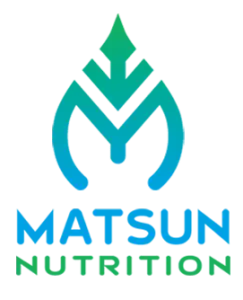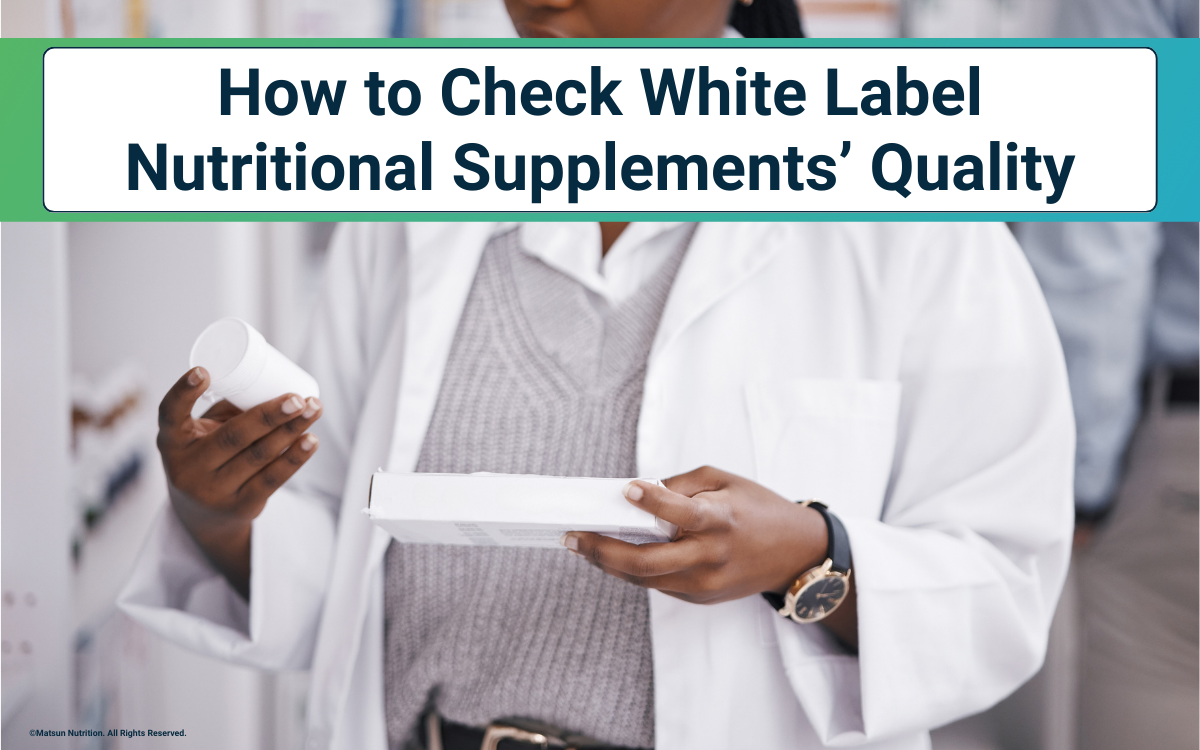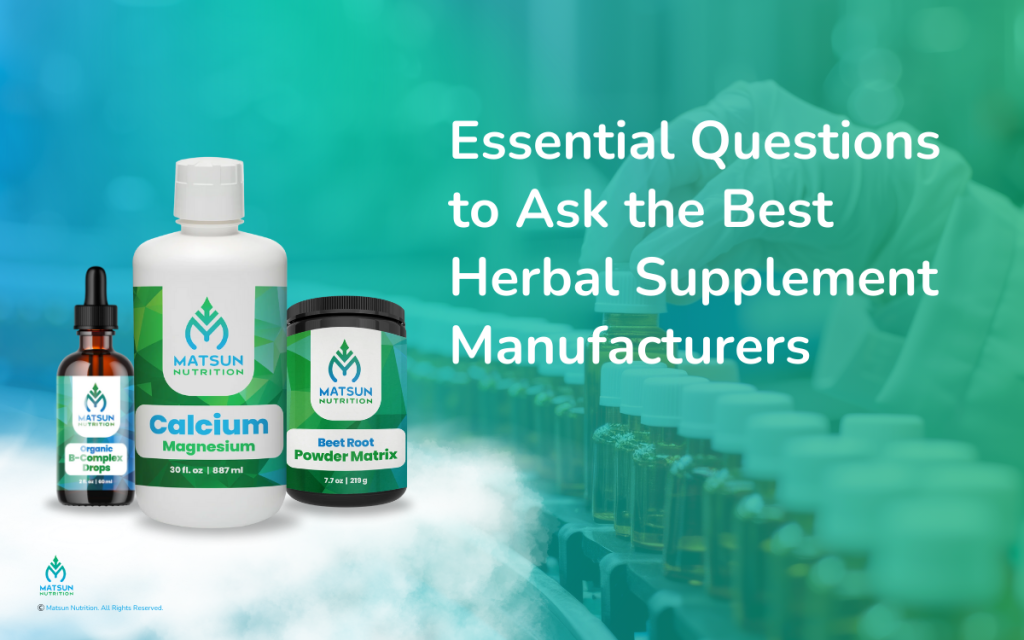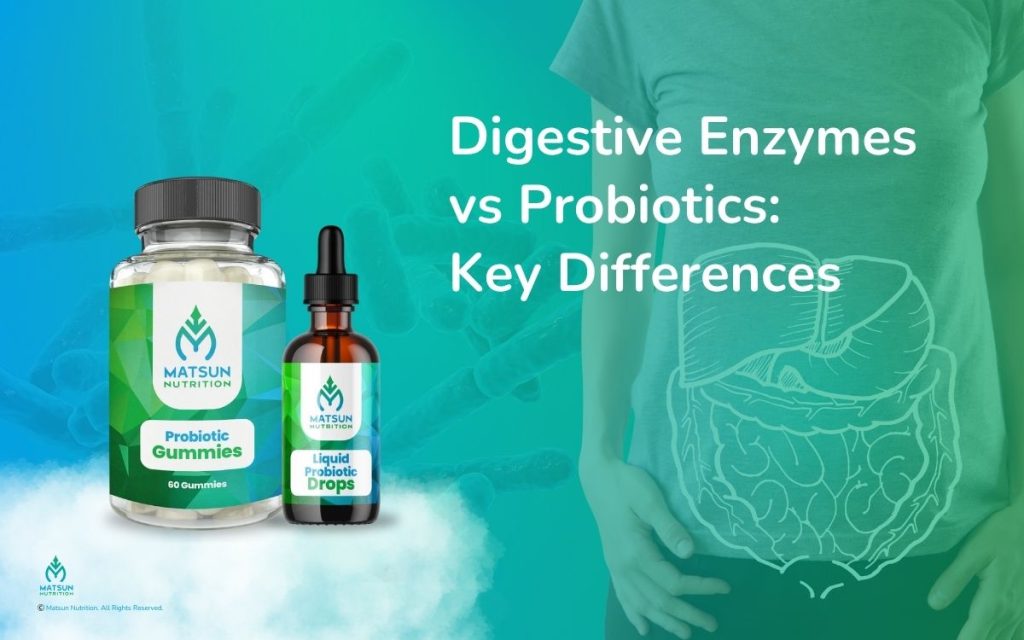The U.S. supplement market is booming, with millions relying on nutritional products every day. For brands selling white label supplements, product quality is the difference between lasting success and lost trust. Choosing the right manufacturer means checking everything from ingredient sourcing and GMP certification to third-party testing and compliance.
In this guide, we’ll break down the key factors every brand must evaluate to ensure supplement quality and partner with a trusted white label supplier.
What Are White Label Nutrition Supplements?
White label nutritional supplements are products manufactured, packaged, and tested by a third-party manufacturer who then makes them available for you to rebrand and sell as your own. The third-party manufacturer relieves you of complex manufacturing tasks, allowing you to focus on what matters most — building a strong brand.
This can make white label nutritional health supplements an excellent option for your brand if you’re starting a supplements business, need low minimums, and don’t require custom formulations.
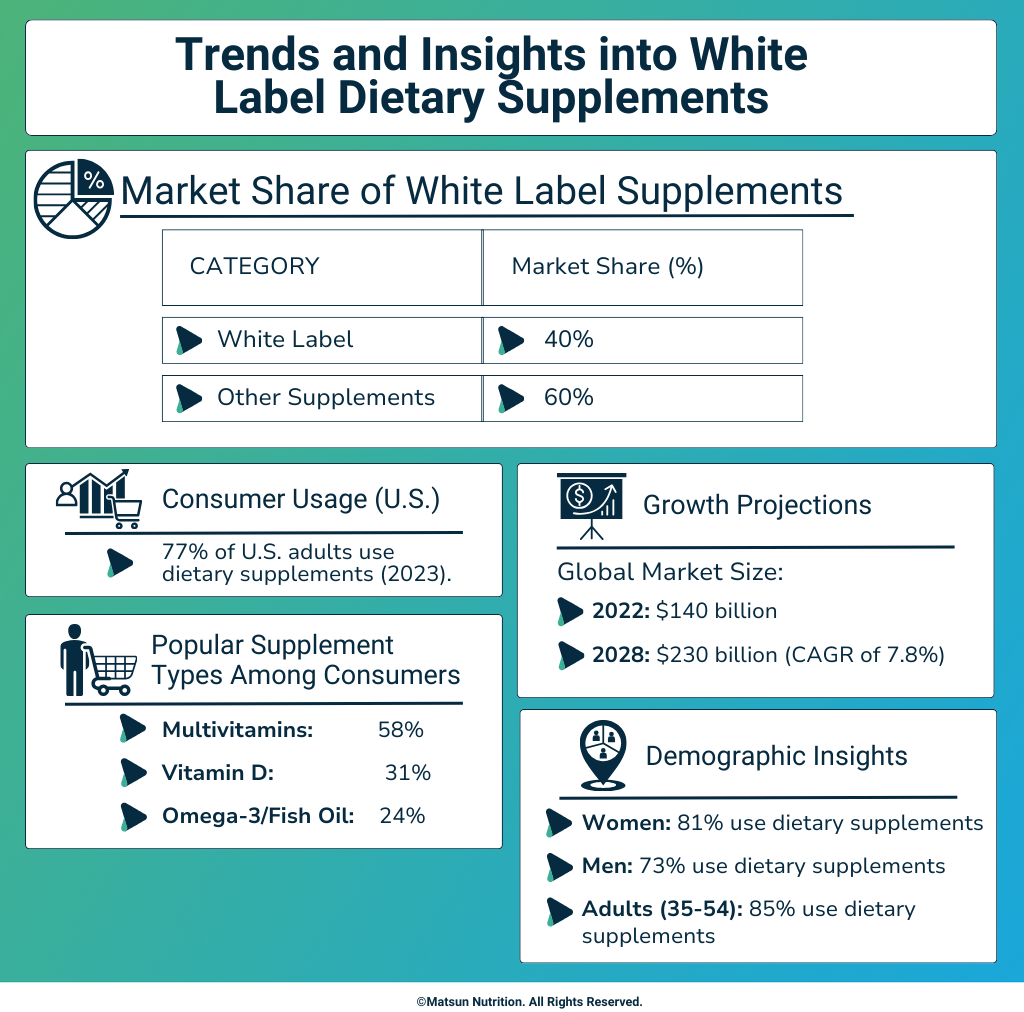
Factors to Consider When Assessing White Label Nutritional Supplement Quality

Choosing a white label health supplement supplier can be challenging. Unsure which supplier to select? Here’s what to look for in white label nutritional supplements:
1. Third-Party Testing
Third-party testing happens when nutritional supplements are tested by an independent organization not involved in their production or formulation. Third-party organizations test supplements to determine their efficacy, purity, and composition.
Look for supplement manufacturers that partner with third-party testing organizations such as ConsumerLab.com, NSF, or U.S. Pharmacopeia.
2. Product Certifications
Product certifications demonstrate a supplier’s commitment to high-quality standards. Additionally, they can increase the perceived value of your white label nutritional supplements. Look for a manufacturer with well-recognized product certifications such as USDA Organic, Oregon Tilth, or Non-GMO Project Verified.
3. FDA-Compliance
The U.S. Food and Drug Administration (FDA) regulates nutritional supplements intended for consumption in the United States by humans and animals. Choose a white label manufacturer that runs an FDA-registered facility to ensure your supplements conform to the required standards.
4. Facility Certifications
Besides product certifications, choose suppliers with facility certifications. Ideally, look for a manufacturer with the Good Manufacturing Practice (GMP) certification. The GMP certification was established by the US Food and Drug Administration (FDA) to ensure supplement producers adhere to high-quality standards.
5. Ingredient Composition and Transparency
Reputable white label nutrition supplements manufacturers use high-quality ingredients in their formulas to ensure their efficacy. They also typically don’t use binders or fillers to preserve the integrity of their formulas.
Additionally, they clearly disclose all the ingredients in their formulations and don’t hesitate to share ingredient sources. As more American consumers are becoming concerned about the ingredients in their food, it’s critical to ensure you choose a white label manufacturer that’s transparent with ingredient information.
6. Manufacturer Experience
Often, manufacturers with a long history of producing nutritional supplements are more likely to provide high-quality supplements than new ones. Choose a supplement manufacturer with a proven track record in the supplements industry or a new one with an experienced team.
7. Reviews and Testimonials
Reviews and testimonials can reveal a lot about the quality, purity, and effectiveness of a white label nutrition supplements. If you come across a white label health supplement with many favorable reviews and testimonials, it’s likely a quality product. Conversely, if you come across one with many unfavorable reviews, you might want to explore other options.
What to Look for When Reading White Label Nutrition Supplement Labels
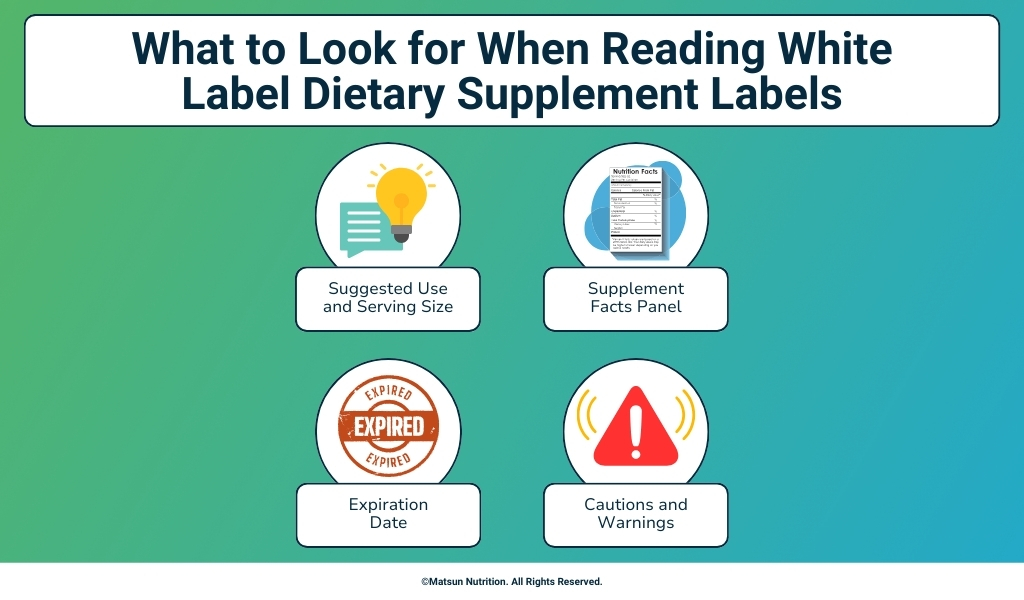
The label on a nutritional supplement can reveal a lot about what’s inside. Here’s some key information you should look for when reading white health supplement labels:
1. Suggested Use and Serving Size
The suggested use and serving size are usually at the top of a supplement facts label. For instance, if you are reading the label on a liquid multivitamin formula, the suggestion use section may state ”Store in a cool, dry place.” Meanwhile, the serving size section may indicate ”Serving size 2 tablespoons.”
2. Supplement Facts Panel
The supplements facts panel is usually situated right below the serving size. This section includes basic information on nutritional supplements, such as the composition of the ingredients and the number of calories per serving.
It also contains the Percent Daily Value (%DV), which indicates the estimated nutritional requirements of an adult on a 2,000-calorie diet. For example, if a nutritional supplement indicates that it contains 55% of the %DV for Vitamin A, it has about 55% of the required daily amount most people need.
Third-party testing organizations usually test nutritional supplements to ascertain the information indicated on the supplements facts panel is accurate.
3. Expiration Date
The FDA doesn’t require manufacturers to indicate expiration dates on supplement labels. However, manufacturers may include expiry dates if they’re supported by verifiable data.
If you come across a health supplement with an expiration date label, the product probably won’t be as potent after its expiry date.
4. Cautions and Warnings
Some supplements may cause allergies, interact with other medications, or they may be potentially unsafe for pregnant women. The cautions and warnings section indicates the precautions consumers should take when taking supplements or people who should avoid them.
For instance, many nutritional supplements advise pregnant women to consult physicians before starting a supplement regimen.
Benefits of Choosing High-Quality White Label Nutritional Supplements
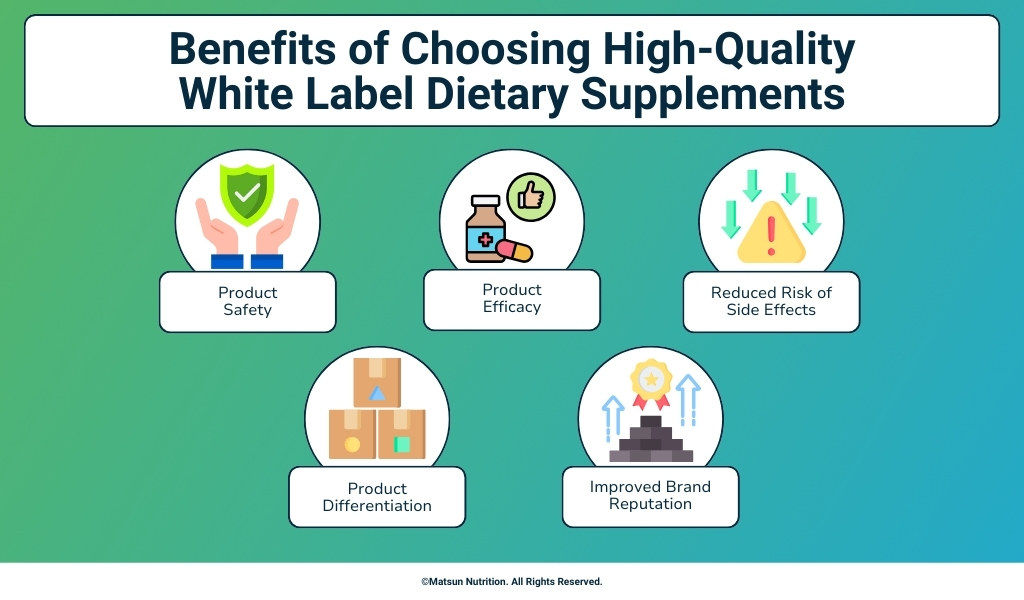
Choosing a high-quality white label nutritional supplement company can do wonders for your brand. Here are some of the benefits of choosing high-quality white label health supplements:
1. Product Safety
Nutritional supplements may contain small amounts of heavy metals, such as lead, mercury, and lead. While trace amounts of these heavy metals aren’t harmful, some nutritional supplements contain dangerously high levels of these metals.
Choosing high-quality supplements manufactured at an FDA-registered facility that partners with third-party testing organizations can ensure your nutritional supplements are free from toxic metals.
2. Product Efficacy
Some supplement manufacturers water down their formulations to cut down on production costs, reducing the efficacy of their nutritional supplements. Choosing high-quality nutritional supplements that undergo rigorous testing can ensure your product works as expected and produces the desired results.
3. Reduced Risk of Side Effects
While most nutritional supplements are generally safe, they may come with side effects — especially when taken in high doses. High-quality supplements are less likely to cause side effects as they have been thoroughly tested for ingredient purity.
4. Product Differentiation
According to the FDA, there are more than 29,000 nutritional supplement brands, with an average of 1,000 new products launched annually. Providing high-quality white label health supplements can set your brand apart from competitors offering substandard products.
5. Improved Brand Reputation
Offering consumers high-quality supplements that meet their expectations can enhance your brand’s reputation. This can boost consumer trust in your brand, increase sales, and ultimately improve your bottom line.
Select a Reliable White Label Nutritional Supplement Manufacturers
Not all white label supplement brands are created equal. While some manufacturers offer high-quality nutritional supplements, others offer low-quality ones. Want to provide consumers with effective, safe, and pure nutritional supplements?
Then, look for a manufacturer that’s FDA-compliant, has relevant certifications, and conducts third-party testing. Also, choose a manufacturer that discloses nutritional ingredients used in formulations and has favorable reviews and testimonials.
At Matsun Nutrition, we have been offering high-quality nutritional supplements for over three decades. We are a GMP-certified supplement manufacturer with an FDA-registered facility, and our supplements undergo stringent testing to meet the highest industry standards.
But don’t just take our word for it. Contact us today to book a tour of our supplement manufacturing facility and get firsthand experience of the rigorous quality control measures we put in place to ensure our clients get products that surpass nutraceutical industry standards.
Frequently Asked Questions
What does white label mean in supplements?
White label supplements are pre-formulated products manufactured by a company that other businesses can rebrand and sell under their own label.
How do I check the quality of white label nutritional supplements?
Quality can be verified through third-party testing, GMP certification, and confirming the supplier follows FDA guidelines and transparent ingredient sourcing.
Why is GMP certification important for supplement manufacturing?
GMP (Good Manufacturing Practices) ensures supplements are produced under strict quality, safety, and consistency standards, giving brands credibility and trust.
What should brands look for in a white label supplement manufacturer?
Key factors include compliance certifications, transparent ingredient sourcing, testing protocols, production capacity, and customization options.
Are white label supplements FDA approved?
The FDA does not approve dietary supplements before they go to market, but it regulates labeling and requires manufacturers to follow GMP standards.
Can I customize white label supplements for my brand?
Yes. Many manufacturers offer customization options such as flavors, packaging, labeling, and even small adjustments to formulations.
How do white label supplements compare to private label supplements?
White label supplements are ready-made products that multiple brands can sell, while private label supplements are more customized and unique to your brand.
